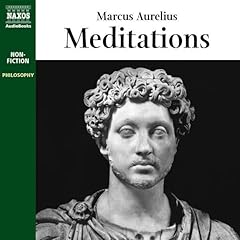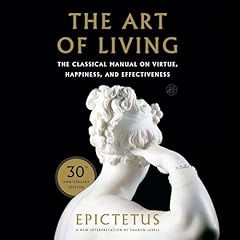
The Art of Living
The Classical Manual on Virtue, Happiness, and Effectiveness
No se pudo agregar al carrito
Solo puedes tener X títulos en el carrito para realizar el pago.
Add to Cart failed.
Por favor prueba de nuevo más tarde
Error al Agregar a Lista de Deseos.
Por favor prueba de nuevo más tarde
Error al eliminar de la lista de deseos.
Por favor prueba de nuevo más tarde
Error al añadir a tu biblioteca
Por favor intenta de nuevo
Error al seguir el podcast
Intenta nuevamente
Error al dejar de seguir el podcast
Intenta nuevamente
 Exclusivo para miembros Prime: ¿Nuevo en Audible? Obtén 2 audiolibros gratis con tu prueba.
Exclusivo para miembros Prime: ¿Nuevo en Audible? Obtén 2 audiolibros gratis con tu prueba.
Elige 1 audiolibro al mes de nuestra inigualable colección.
Acceso ilimitado a nuestro catálogo de más de 150,000 audiolibros y podcasts.
Accede a ofertas y descuentos exclusivos.
Premium Plus se renueva automáticamente por $14.95 al mes después de 30 días. Cancela en cualquier momento.
Compra ahora por $9.76
-
Narrado por:
-
Richard Bolles
Los oyentes también disfrutaron:




















Las personas que vieron esto también vieron:


















2000+ year-old wisdom that holds true today
Se ha producido un error. Vuelve a intentarlo dentro de unos minutos.
The world needs this.
Se ha producido un error. Vuelve a intentarlo dentro de unos minutos.
lean, but not mean. straight to the point !
Se ha producido un error. Vuelve a intentarlo dentro de unos minutos.
we forgot how to build a character
Se ha producido un error. Vuelve a intentarlo dentro de unos minutos.
phenomenal
Se ha producido un error. Vuelve a intentarlo dentro de unos minutos.


